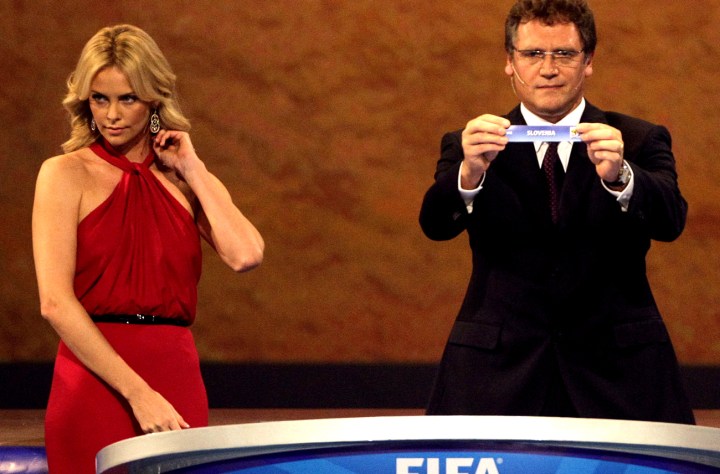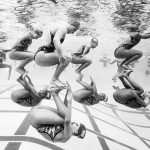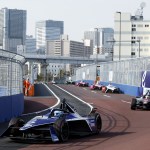Sport
The 2010 Soccer World Cup, not for sissies

All participants in the 2010 Fifa Soccer World Cup go into the draw hoping to be placed in an easy group, but almost all come out thinking they didn’t get it. The truth is that easy groups don’t exist.
The prelude to Africa’s first Soccer World Cup went off without a hitch on Friday, but perhaps a bit downbeat when it dawned on all the teams precisely how difficult it is going to be to progress to the second knockout round.
None more so than hosts South Africa, who are in the only group to contain two previous World Cup winners, France and Uruguay. They could also have hoped for an easier start to the competition than having to face Mexico.
But SA’s reinstated coach, Carlos Alberto Parreira, put his finger on it in the post-draw interview with the SABC when he said that there is much more balance between soccer-playing nations now than in the past.
Parreira noted that it was the only group with two former world champions, but added, “It doesn’t scare us. It is a challenge for us,” demonstrating the obligatory confidence of the seasoned campaigner that he is.
Yet the curiosity of post-draw commentary was how much it focused on the “tough group” this or that country drew.
Since the tournament is taking place on African soil for the first time, fostered by President Jacob Zuma’s confident assertion that an African team would win, there was some discussion about the draws of the continental teams.
The prevailing opinion is that African teams did not fare particularly well. Veteran Africa soccer writer and commentator Mark Gleeson wrote for Reuters that the hopes of Africa’s six contenders of getting through to the knockout phase “looked a tough ask” after Friday’s draw.
Yet with six contenders and eight categories, this is essentially the same as saying that all groups were tough, which is essentially the truth.
Yet you have to feel a bit for Ivory Coast, perhaps the best African side in the tournament, who will have to negotiate a group which includes five-time World Cup-winners Brazil and Portugal, late but strong contenders.
By comparison, Cameroon has what seems like an easier ride, with Holland, Denmark and Japan in their group. Likewise Nigeria, fielding perhaps the weakest side in recent history, face Argentina, Greece and South Korea in Group B. Algeria are in Group C with England, the US and Slovenia, which might not seem a particularly tough group except that Slovenia played exceptionally well during the qualifiers and were responsible for excluding Russia.
Ghana, who some consider could be the dark-horse African side, face Germany, Australia and Serbia, which also seems pretty tough.
But for all that, African sides can be thankful that they are not in groups which include current holders of the title Italy or favourites Spain.
The secret of the structure of the world cup with a “group stage” and a “knockout stage” is that the group stage is designed to ensure that the top teams are not ejected from the tournament by a lesser side’s stroke of luck, which would cause all kinds of gnashing of teeth within the powerhouses of the sport.
Since two of every group go forward and a draw is likely between two teams somewhere in the group, one really decisive win and a bit of luck is quite often all that is required to progress.
Yet, in this new era of football internationalism, even for the traditionally strong sides, this is becoming a harder and harder task. Ivory Coast is a tiny, poor country, but almost all of its team’s players are regulars in European clubs.
Consequently, the bookies don’t have European champions Spain down as favourites, but it’s a 4:1 bet, hardly the strongest of odds, despite what some describe as a good draw.
The betting tells other interesting stories too. Ever-pessimistic South Africans may already be bracing themselves for an early exit, but they are not even close to being the least-favoured side. That dubious distinction goes to North Korea currently sitting at 2000:1.
South Africa are currently 125:1, better that Greece, Slovenia and Algeria, presumably based on the past out-performances of host nations.
England’s odds have shortened to 5:1 after the supposedly favourable draw, making them second favourite, but these are British bookies don’t forget, and the Brits are often guilty of over-rating their national side, based on the prowess of British club football. The South Americans, Brazil and Argentina, then follow inevitably, yet once again the odds are relatively long – 11:2 and 9:1.
Punters know something that fans do not – winning this thing is not based on skill alone. The dice inevitably come into it somewhere.
By Tim Cohen


















 Become an Insider
Become an Insider